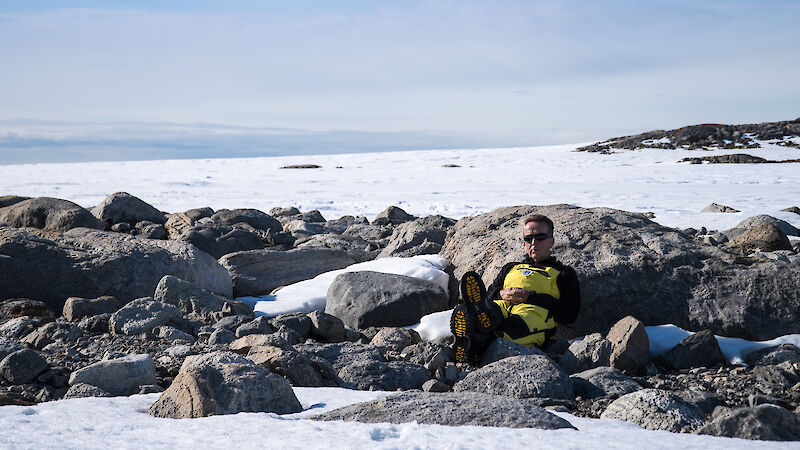I leave at a time of great change and opportunity and I feel deeply privileged to have played a small role in guiding the Antarctic Program to its current state.
The Australian Antarctic Division and the broader Antarctic Program are defined by, and proud of, our rich history and those who built our Antarctic legacy. We are indebted to the Australian National Antarctic Research Expeditions (ANARE) Club who remind us that we are part of a long tradition of shared endeavour in Antarctica. We all bring passion and commitment to our jobs, with expeditioners returning time and again to our Antarctic and sub-Antarctic stations, and Kingston staff remaining a part of this community for much of, or all, their careers.
It is this sense of purpose and pride in our work that make being part of the Australian Antarctic Division, or heading south as part of our Antarctic Program, such a wonderful experience. It is these same strengths that we now need to harness to enable us to respond to the rapidly changing environmental and political arenas in Antarctica.
The changes in Antarctica are profound. When I started my Antarctic career in 1985 as a (very) young biologist on Heard Island, and then a winter at Davis research station, our research was largely unknown in Australia, and the Antarctic Treaty had changed very little over its 25 year history. Australians knew a little about Antarctica’s heroic era, but saw little relevance to their daily lives in our work or how the continent was governed.
Communicating the importance of our Antarctic research and governance, and the significance of Antarctica to the planet, is a challenge to which we must continue to rise.
We now know that Antarctica and the Southern Ocean drive much of our global climate and weather. We also know that the science we do is fundamental to our understanding of just how vulnerable Antarctica is to human influence, and to informing our ability to mitigate and adapt to the massive challenges we face with climate change. There is a very clear and direct line between the science we do, the policy it informs and the wellbeing and resilience of Australians and Australian society in the future.
At the same time that we recognise how important Antarctica is, the central tenants of the Antarctic Treaty system of peace, science and environmental protection are being challenged.
One of the things I am most proud of contributing to, in my role as Chief Scientist and then Director of the Australian Antarctic Division, has been the 2016 Australian Antarctic Strategy and 20 Year Action Plan. This strategy strengthens Australia’s leadership role in Antarctica by setting in place major science and support commitments, including transport (our new Antarctic icebreaker RSV Nuyina, a proposed new aerodrome near Davis, and deep-field traverse capability), station infrastructure (the new Macquarie Island research station and upgrades at other stations), and mechanisms to support greater and more sustained funding for science.
These investments will drive a fundamental change in the scale and nature of the way the Australian Antarctic Division and the Antarctic Program functions, and will set us up to deliver on the promise of continued and urgently needed leadership and influence in the Treaty.
Our great strengths that are built from our past, need to be focused on a future that embraces the necessary change, to remain relevant and influential in a rapidly changing and increasingly threatened Antarctica.
I’m immensely grateful for the support and encouragement I have received from so many of you over my years here, and I hope you provide that same level of support to my successor. The Antarctic and Hobart communities are small enough to ensure that my path will cross with many of you in the future, and I look forward to that.
Fair winds and following seas to you all.
Nick Gales

